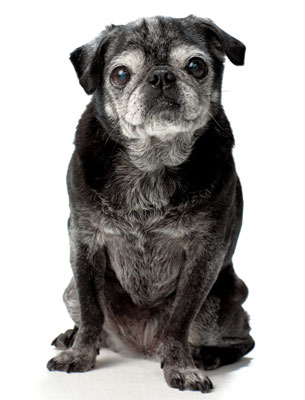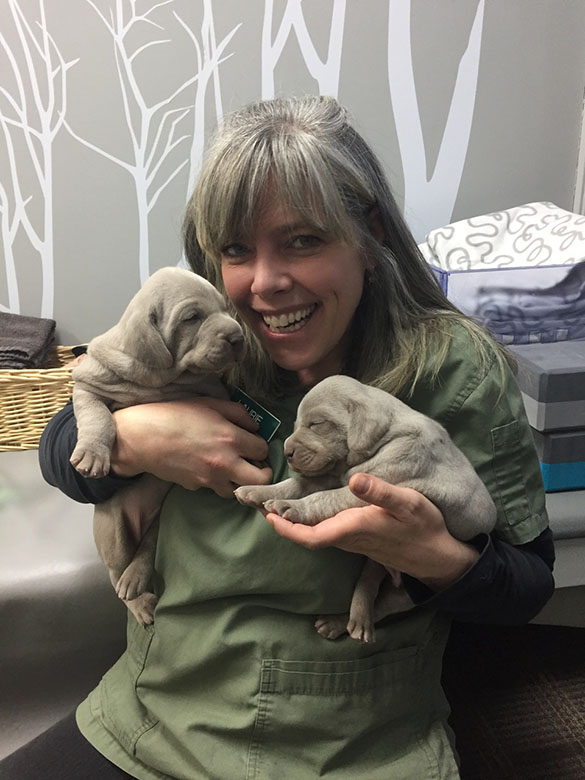Laurie's Blogs.
Feb 2020
Transitioning into appreciation for the ‘old dog’

This past week and a half I had two patients come in. Both older dogs. And both facing a decline in their health. It got me to thinking about the mindset of clients and how to get them to transition from ‘Keep my dog strong, young and healthy’ to ‘I am grateful to have this wonderful old dog in my life.’
I’m sure you’ve had these clients. They come to you because they want help to keep their dog young, strong, and healthy. Delay aging if you can! Make them look and feel like they’re 4 years old again! Often times when starting rehab with a ‘newly declining’ senior dog, we really can make a huge impact on the dog’s physical function.
However, as time marches on, the dog inevitably declines again. More than once we’ve seen dog owners panic at this stage. They want you to do more. They find additional therapies to try. Maybe they even seek out someone altogether different… (because maybe they think that you’ve lost your touch). It’s a hard place to be. The owner is suddenly confronted with the mortality of their best friend and they get scared.
Sometimes doing more or doing something different can make an improvement. However, aging spares no one! There will be more declines to come. (Except for Jane Fonda! She’s amazing!)
One thing I have struggled with is helping clients to shift from ‘prevent my dog from aging’ to ‘acceptance of the aging process and enjoying the new norm.’ To be bluntly honest, I’ve not found a good way of getting owners to shift mindset based on my words alone. Not to say that I don’t plant that seed. I do. However, I’ve found that the owners have to come to this transition themselves.
One of the ways I’ve witnessed the transition is when the dog has a major setback. A setback so severe that the owner is faced with decisions about quality of life and/or euthanasia. If the dog bounces back from that, it’s the perfect opportunity to broach the subject of ‘the new norm and appreciating the old dog as an old dog’. It’s a tough lesson. It’s traumatic. But on the other side of the ‘scare’ is beautiful.
The other way the transition might occur is when dog owners get to see and/or interact with other dogs and dog owners at the clinic. I’ve had owners stressed out about their dog’s osteoarthritis. I tell them, it’s only osteoarthritis, we have lots of ways to tackle this problem. They’re still distressed until they leave my treatment room and get to see the paralyzed dog in the waiting room with owners that are over the moon because their dog just started to wag his tail again. It’s a heavy dose of perspective!!!
All this to say, that our life’s journey with dogs gives us so many opportunities for emotional and spiritual growth. Helping our clients move from denial of aging, to appreciation of it, is a special gift that we get to take part in giving. It’s a gift I am honoured to be a part of and it’s one (of many) of the deeply rewarding parts of being a canine rehab practitioner.


